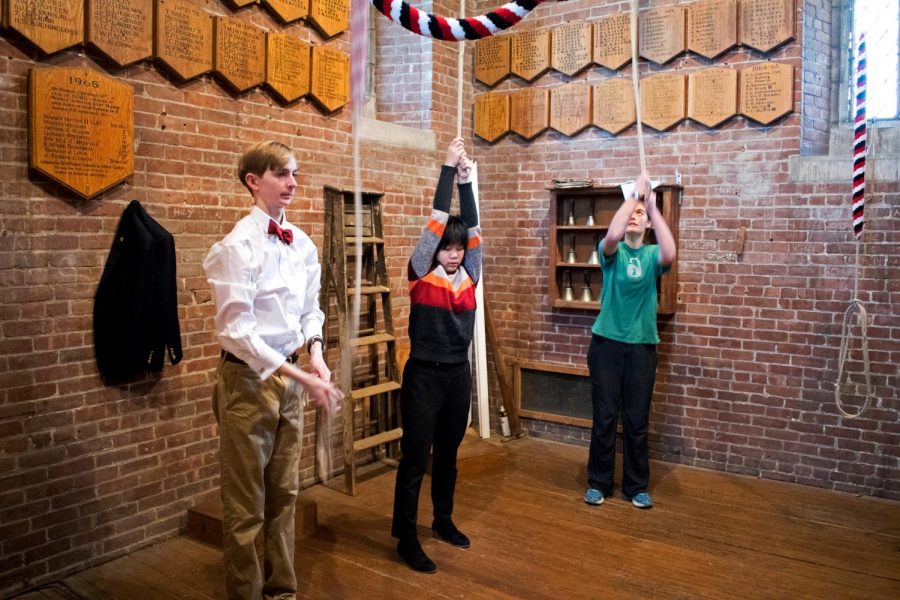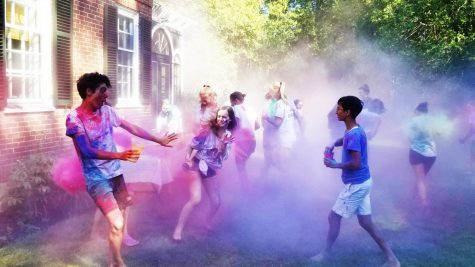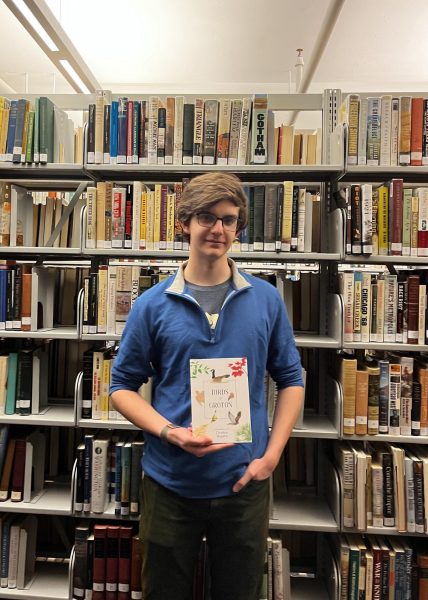A History of Sunday Bell Ringing
Bell ringing at Groton began shortly after the chapel was built in 1900, and a club was soon established for the activity. The Bell Ringing Club has fluctuated in membership in recent years and disappeared for two years after the heads graduated in 2016. Last year, John Rogers ’22, Robin Huntington ’22, Julia Lin ’22, and Jack Sperling ’22 decided to reestablish the long-standing tradition and have been practicing almost every Sunday since. It is currently not an official club, but students are welcome to practice the bells during their free time. Students are also welcome to join the club and ring with them on Sunday mornings.
Bell ringing is firmly rooted in the school’s traditions, from Sunday chapel to Lessons and Carols. On Prize Day last year, the bells were rung for the same number of times as the number of students in the graduating class of 2018, an idea thought up by choirmaster Dan Moriarty and headmaster Temba Maqubela.
Groton’s bells are English-style bells that were originally cast in London at the Whitechapel Bell Foundry and re-cast in 1962. That foundry has cast some of the most well-known bells in the world, including Big Ben’s, the Liberty Bell, and even the 2012 London Olympics bell. The mechanics of bell ringing used at Groton were developed in England during the 16th century. The bells are attached to wheels, which rotate full circle around an axis, ringing the bells when ringers pull on the bell rope. This technique of bell ringing is quite costly and rare in America.
At the start of this year, complaints from students about the bells being a public annoyance were reported to the club, and the heads thus decided to install mufflers on the bells with the help of chapel master Dan Moriarty and bell-ringing enthusiast and alumnus Greg Russell. The mufflers have made the bells significantly quieter and are taken off only during special occasions and services.
Despite these changes, Annabel Kocks ’20 said, “So it’s nice for a couple minutes, but then after a while when you are trying to work… and it just keeps going and going, it just gets on your nerves, makes you not study as productively.” Her sentiment is echoed by other students.
Although many students find the bells annoying, bell ringing remains an important part of Groton’s history as a traditionally Episcopalian school. Some students greatly respect the art of bell ringing, such as Alex Schade ’20, who said, “I think the Groton bell ringing tradition is very important to the school, and some people don’t even know its origin with the school.” John Rogers said that he has received noise complaints, but “not that often.”
Regardless of students’ stance toward bell-ringing, its tradition is intertwined with our roots as an Episcopalian school, and has served as a way to remind people of the presence of God, and of a common community that they cherish.










Mary W. Davidson • Apr 24, 2022 at 3:00 PM
As a faculty child, I grew up hearing the bells that my father (Stuart Wickens)helped to ring on Sundays. The bells were rung after my wedding in the chapel in 1967 as a gift to me & my husband. I often call to mind the bells as a calming reminder of growing up at the school and even now open my windows to catch the 10:30 ringing at Riverside Church here in New York (They can’t compare to the Winchester Peal from the Chapel!).